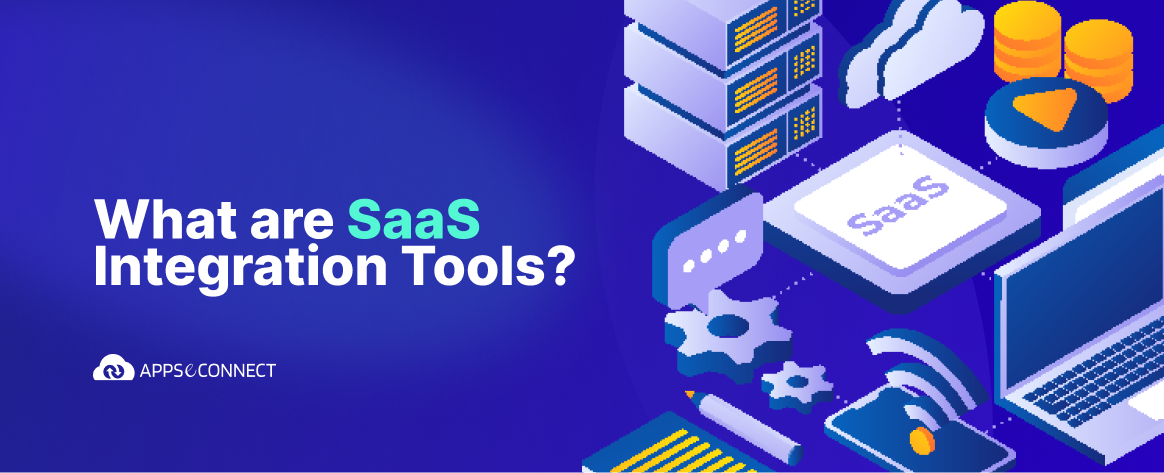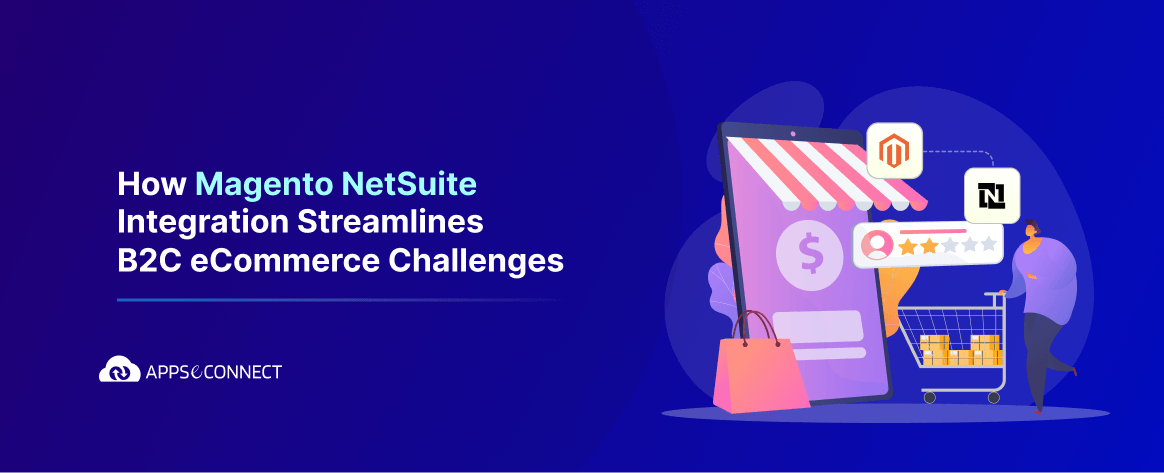Online shopping has become the norm for our daily lives and the eCommerce industry has grown to become one of the biggest and most lucrative business models in our new digital world. With the eCommerce market expected to reach over 4.8 billion users by 2025, transitioning from a traditional brick-and-mortar store or starting up online businesses is more lucrative than ever. However, knowing the right tools for the trade is quintessential to succeed in this ever-growing hyper-competitive eCommerce market. Knowing the top eCommerce platforms, and the features they offer and identifying the ideal platform that works in sync with the business can help enterprises achieve greater heights of success in this ever-turbulent industry of online commerce.
What are eCommerce Platforms?
For a company to manage its businesses online, it needs a platform to host the webstore. An eCommerce solution is a Content Management System (CMS) that provides a platform for vendors to carry out transactions of products or services through a digital storefront. Through an eCommerce platform, sellers can manage cataloged products, register purchases, and manage customer experiences.
Most modern eCommerce platforms are SaaS (Software as a Service) applications and offer robust cloud-based shopping features with prebuilt marketing, content, and sales frameworks that integrate seamlessly into existing workflows from which both B2B and B2C companies can benefit.
Why Use eCommerce Platforms?
Starting an eCommerce business mandates the need for a webstore to allow vendors and customers to sell and buy online. To set up an eCommerce platform, there are three ways to do it. The first is to contract a website developer or an agency which often necessitates a large budget, which most new businesses starting out may not have at hand. The second is to dedicate in-house resources to develop the webstore from scratch, which requires extensive technical knowledge and is time-consuming to implement.
This brings us to our third option, using a trusted eCommerce platform. eCommerce platforms come in as pre-packaged solutions with all the necessary features to seamlessly set up an online webstore, without the need for complex coding or an eCommerce expert. With the complete set of features provided by eCommerce platforms, businesses can get started faster and improve their time to market. Thus, eCommerce platforms offer more operational flexibility, improved ROI (Return on Investment), and better business scalability. Additionally, another benefit offered by eCommerce platforms is that it allows sellers to deliver effective multi-channel shopping experiences to customers through both desktop and mobile platforms. The functionality to provide discount coupons and use pop-ups to boost sales also often come packaged with most modern eCommerce platforms.
All modern eCommerce platforms offer a myriad of functionality to businesses to boost their growth and deliver effective and memorable customer experiences. However, the ideal eCommerce platform comes down to the unique needs and growth plans of the business. With 2023 right around the corner, here is a comprehensive guide to the top eCommerce platforms to look out for.
Working with an eCommerce platform with multiple business applications running in your business? Seamlessly connect your entire software stack with your eCommerce platform under a single, intelligent, and secure platform to automate your business processes – implement APPSeCONNECT’s robust integration connectors and achieve exponential growth in your business.
The Top eCommerce Platforms for 2023
Shopify eCommerce
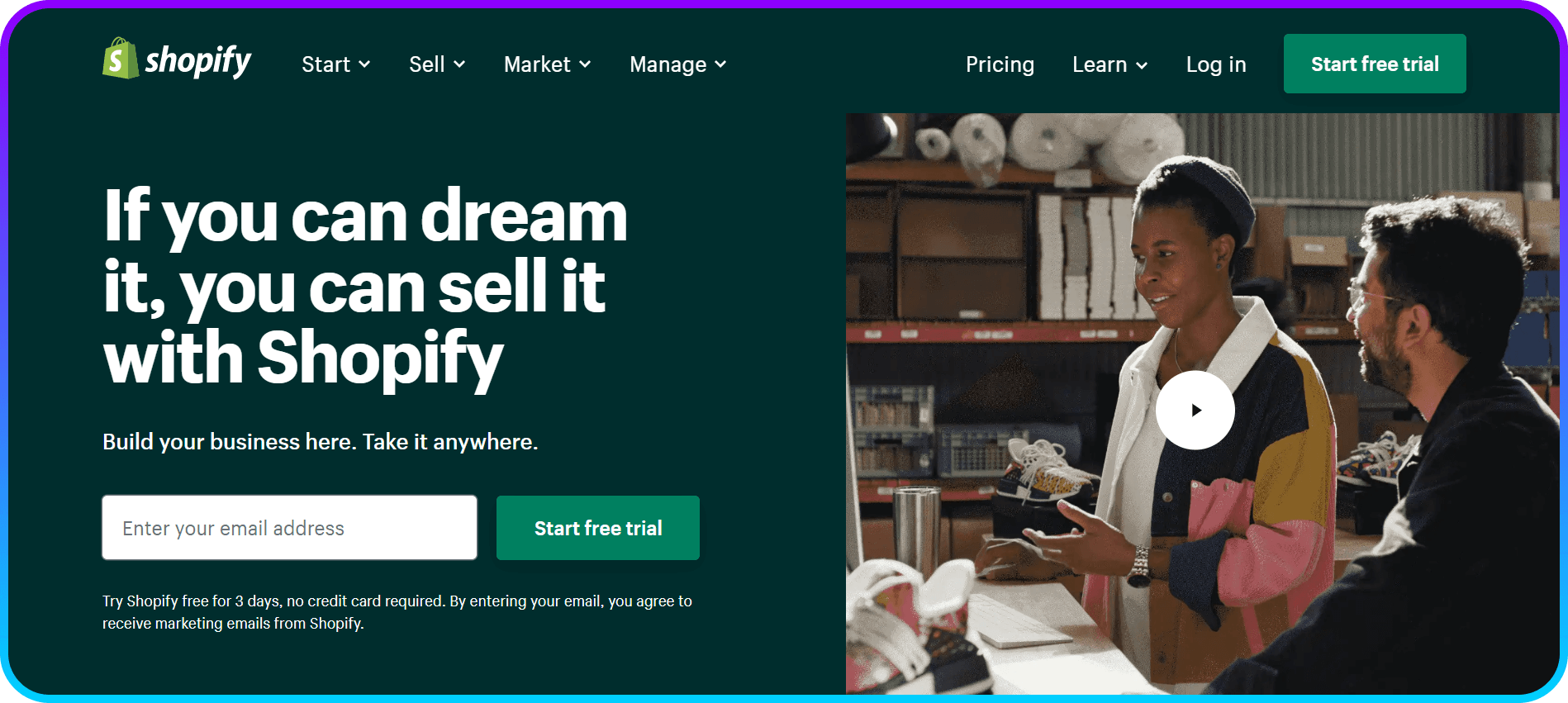
Founded in 2006, Shopify is one of the most popular eCommerce platforms currently in the market with a very intuitive, drag-and-drop webstore builder. Shopify is also an excellent go-to choice for setting up a dropshipping business. The platform allows effortless import and listing of products on the Shopify store from the third-party retailer, edits a listing, and allows both individual and bulk order placement.
Being a SaaS eCommerce platform, Shopify offers the benefits of managing PCI compliance, mobile-friendly designs, and pre-made design templates for creating a customized webstore.
Pros:
- Years of experience and expertise in the industry with over 1 billion active webstores.
- 70+ professionally designed responsive templates to design an eCommerce website.
- Built-in feature for abandoned cart recovery.
- Over 6000 add-on apps from the Shopify App Store for additional functionalities.
Cons:
- The additional transaction fees for third-party payment gateways.
- A limited number of countries support Shopify Payment
Pricing:
Starts with a 14-day free trial with the pricing packages as Basic Shopify: $29.99/month; Shopify: $79/month; Advanced Shopify: $299/month
Shopify Plus
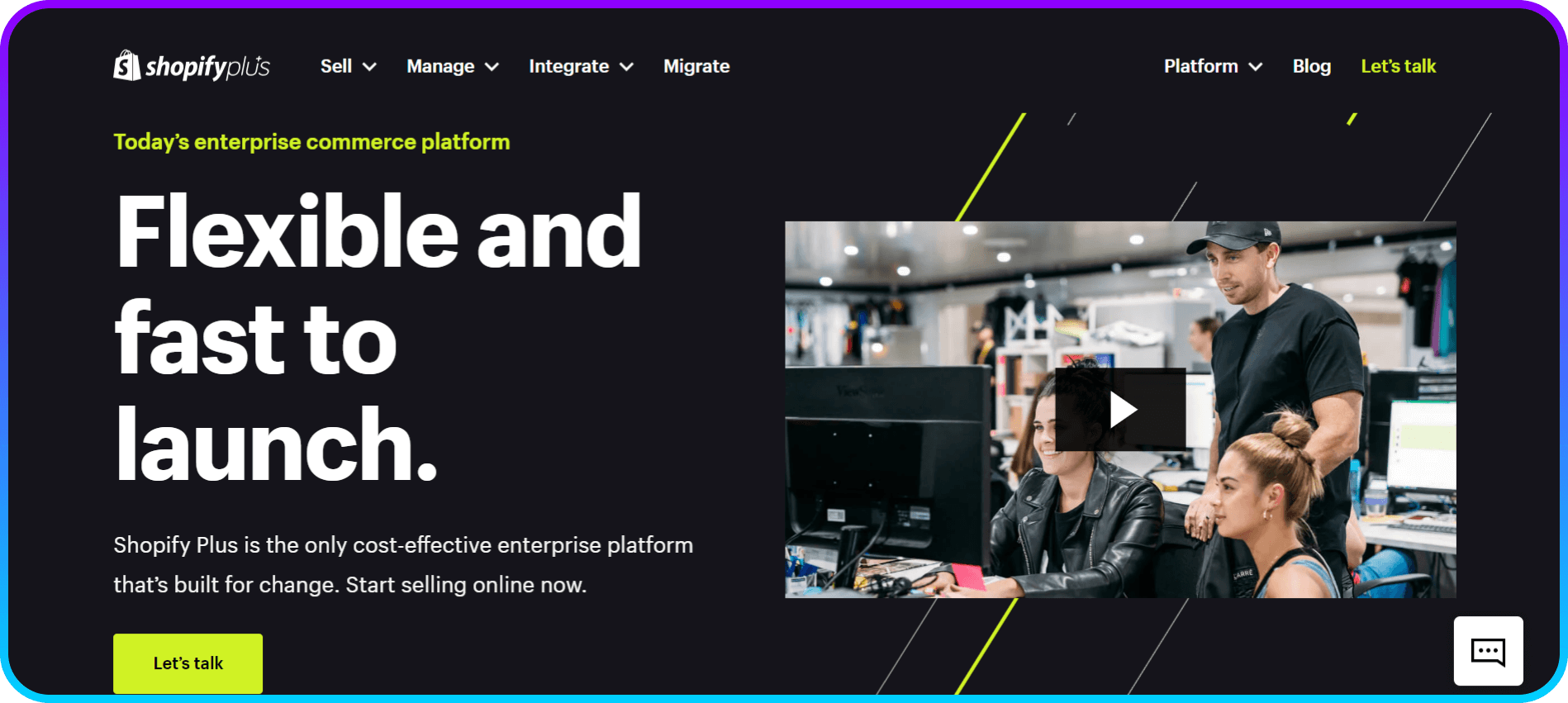
In 2014, Shopify launched Shopify Plus to offer eCommerce functionalities to bigger enterprises. While the basic Shopify platform is designed for small to medium-sized businesses. Shopify Plus aims to manage online sales for larger brands with high-growth, high-volume transactions.
Businesses evolving into bigger enterprise-grade businesses often find it difficult to upscale their existing eCommerce infrastructure to adapt to their newer business strategies. This is where Shopify Plus comes into place to provide a more scalable solution. Some of the well-known brands using Shopify Plus include RedBull and Budweiser.
Pros:
- Provides greater scalability of business operation with unlimited bandwidth and sales capacities.
- Shopify Plus comes pre-packaged with a wide suite of apps and extensions to boost operations.
- Shopify Plus provides unparalleled premium Customer Support and Account Management.
Cons:
- With most of the webstore being managed by Shopify, user-end customization is limited.
- Shopify Plus requires a more hands-on approach with a certain level of expertise to operate the store.
Pricing:
Starting at $2,000/month with a variable fee for higher volume businesses
WooCommerce eCommerce

With most modern websites being built upon WordPress, WooCommerce, an open-source eCommerce plugin for WordPress, makes a no-brainer option for businesses with an existing WordPress website. Once the WooCommerce plugin is installed, users can directly manage it from the WordPress dashboard. With the ease of setup and expanded functionality with hundreds of extensions, WooCommerce makes for an excellent choice for both beginners and advanced users.
Being built upon WordPress, WooCommerce offers built-in SEO functionalities, various payment gateways, and options for multichannel selling.
Pros:
- An excellent option for businesses already running their websites through WordPress.
- Being built on WordPress gives access to the vast library of plugins and extensions for both WooCommerce and WordPress.
- WooCommerce is backed by a large community to help solve issues on your online store website.
Cons:
- Requires installation of multiple extensions as WooCommerce does not come with many functionalities by default.
- WooCommerce store owners must manage their PCI compliance as it does not come by default with the platform.
Pricing:
Free
Adobe Commerce (formerly Magento)
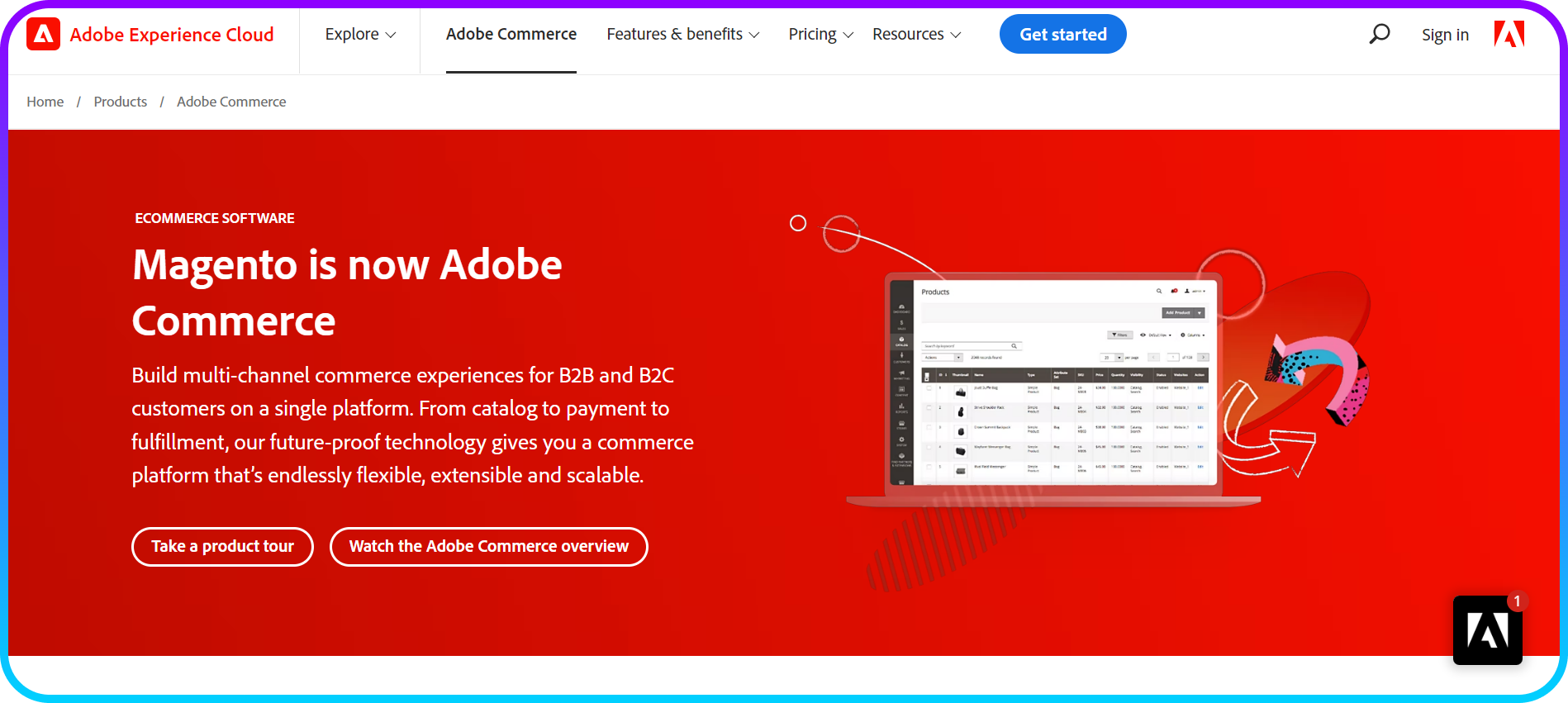
Adobe Commerce, formerly known as Magento, prior to its acquisition by Adobe in 2018 is a non-hosted eCommerce platform made for users who want a powerful, flexible system that is highly customizable. Adobe Commerce offers users a powerful page builder with tools like data reporting and customer segmentation. Its features use advanced algorithms and AI (Artificial Intelligence) technology to analyze customers’ behavior, offering them personalized shopping experiences and product recommendations.
While the platform provides a vast suite of robust features, to use Adobe Commerce, users will have to depend heavily on expert developers and expensive maintenance, which can make it difficult to calculate the total cost of ownership.
Pros:
- Comes packed with pre-built integrations for Adobe software.
- Marketplace with thousands of extensions, ranging from $0 to $15,000 that offer extended functionalities
- Offers built-in support for Progressive Web Applications (PWAs).
Cons:
- Implementation of Adobe Commerce requires in-depth technical knowledge
- The platform is not natively SEO-friendly
- The eCommerce platform can be complicated for newer users
Pricing:
Pricing for on-premises Adobe Commerce starts at $22,000 while Adobe Commerce Cloud starts at around $40,000.
BigCommerce eCommerce
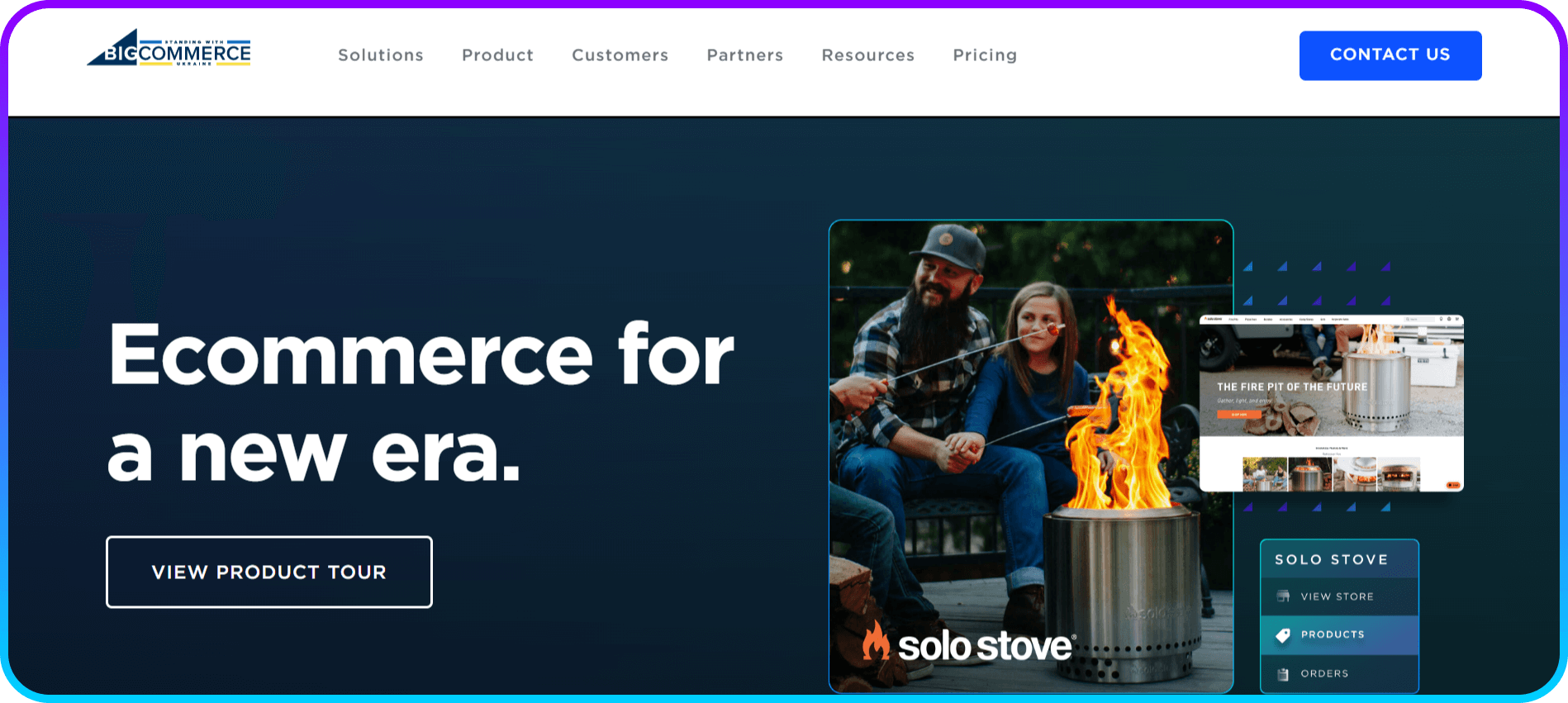
For medium to large businesses such as B2B companies or wholesalers, BigCommerce can be the ideal eCommerce solution. BigCommerce is a SaaS eCommerce website builder that offers a comprehensive suite of tools for marketing, business analytics, high-caliber design options, and plenty of support from industry professionals.
The standout feature offered by BigCommerce is its Channel Manager for multi-channel selling, through which sellers can list products directly across Amazon, Google Shopping, Facebook, and many more through a single platform. The platform also offers social media integration with powerful SEO features and built-in CDN for faster site loading.
Pros:
- Robust built-in multi-channel selling functionalities with seamless inventory management through a single platform for effective sales across multiple channels.
- Comprehensive business management functionalities with a vast library of intuitive, built-in features.
- Supports over 65 payment solutions with zero transaction fees
- Headless commerce support with a fully hosted site where users can effortlessly apply changes to the webstore without risking the eCommerce infrastructure.
Cons:
- The platform does not come packed with a native POS (Point of Sale) solution
- Design options are not user-friendly and can have a steep learning curve for the more advanced tools.
Pricing:
The pricing starts as Standard: $29.99/month; Plus: $79.99/month; Pro: $299.95/month; Enterprise: Custom Pricing based on the company size.
PrestaShop eCommerce
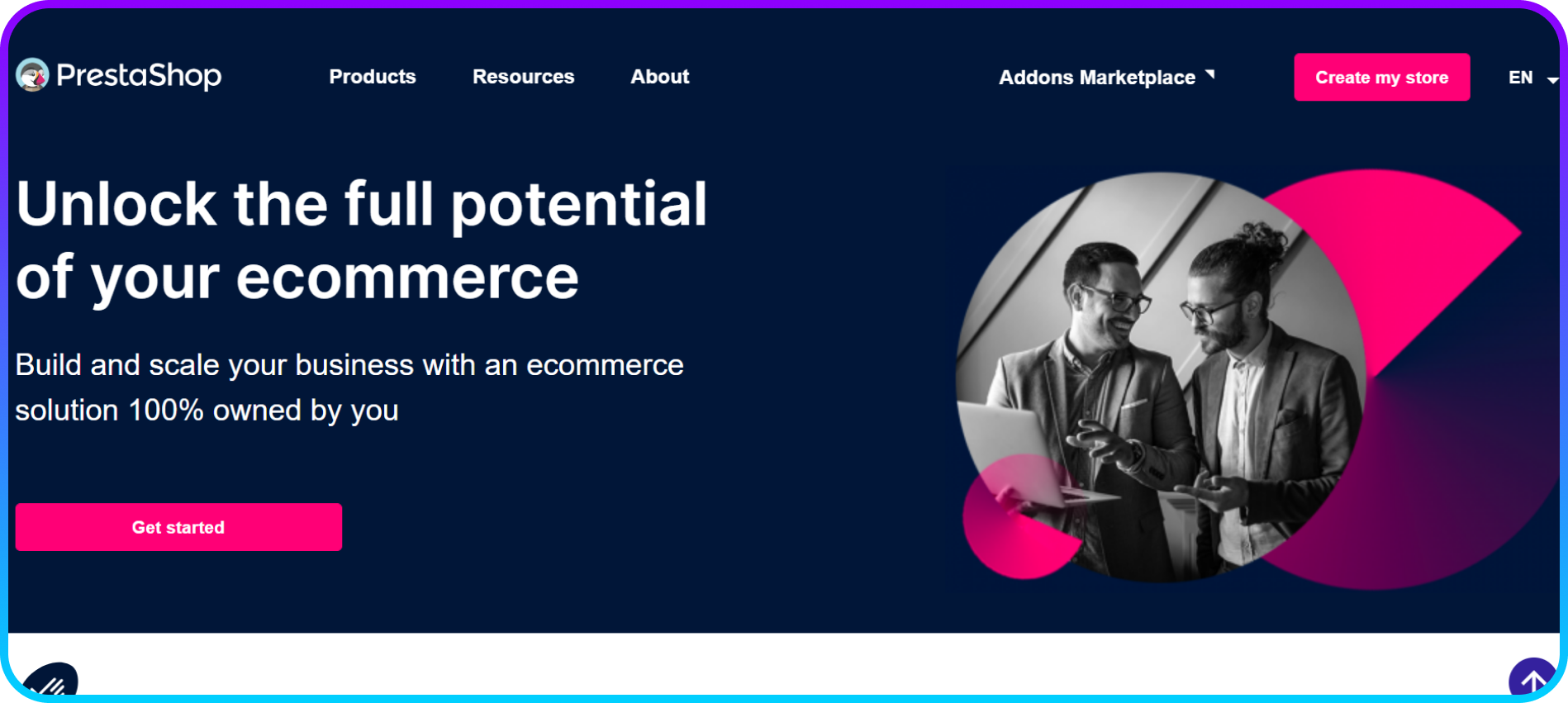
PrestaShop is a popular freemium open-source eCommerce platform that offers paid options for add-ons and plugins for extended functionalities. PrestaShop is free to download, but the user needs to purchase a Prestashop web hosting plan to use it. The open-source platform is written in the PHP programming language with support for the MySQL database management system. A unique feature offered by PrestaShop is PrestaShop Experts, which connects sellers to eCommerce experts from around the world to give them the necessary guidance to run a successful online business.
Pros:
- Effortless inventory management through easy product category creation, defined minimum purchase quantity, etc.
- Global selling through a vast library of payment plug-ins, that are supported across all regions.
- Customers can customize products by uploading the necessary files.
Cons:
- Paid additional templates and modules are needed for a fully functional platform.
- Exchange rates for pricing must be manually updated.
Pricing:
Free
OpenCart eCommerce
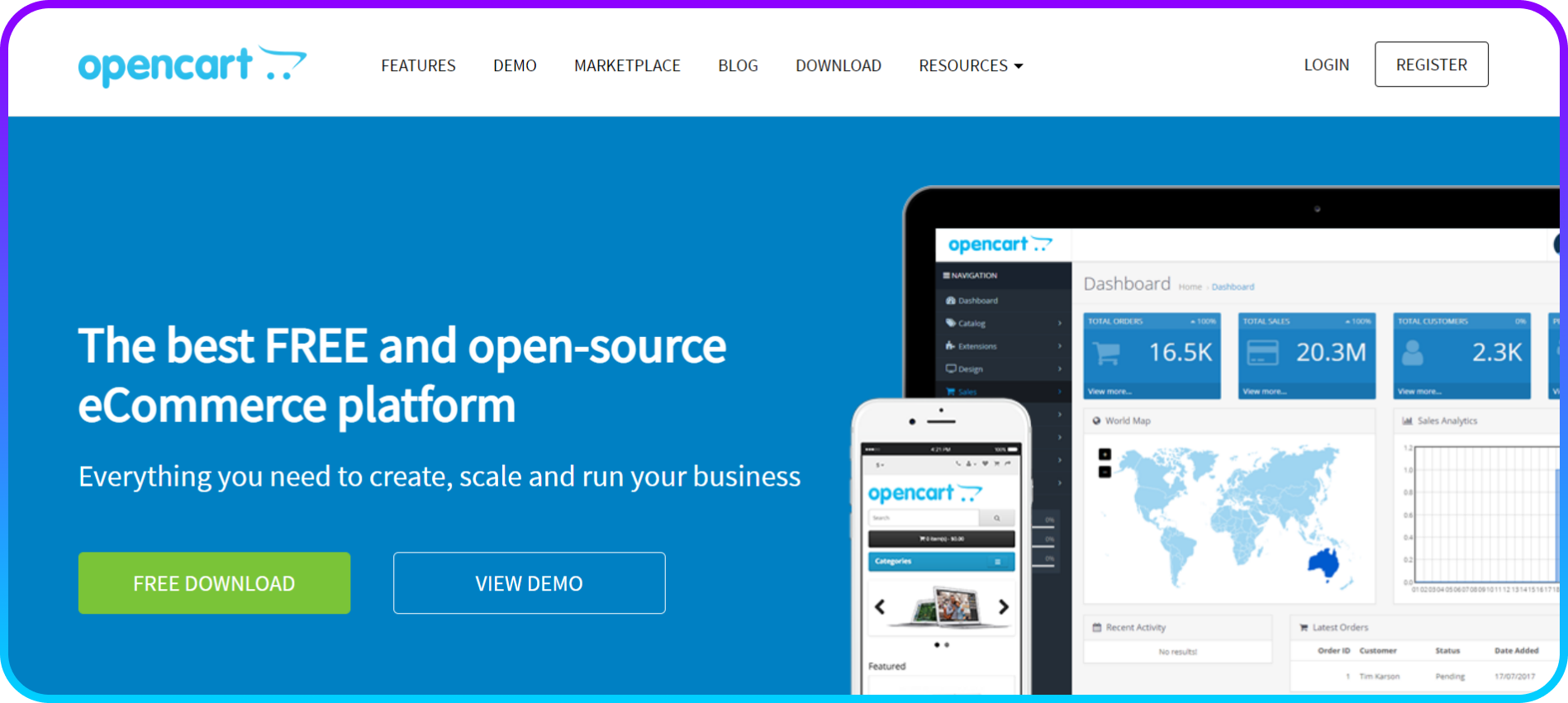
OpenCart is an open-source self-hosted eCommerce platform that utilizes MySQL database and HTML components. The platform packs built-in integration capabilities for the majority of the prominent payment gateways and shipping methods currently in the market. With an intuitive dashboard, OpenCart provides critical business information needed for making an effective data-driven decision at a glance to the user. The platform comes with a mobile-friendly theme right out of the box and offers several advanced features like multi-store admin, unlimited products, product filtering, and marketing analytics tools.
Pros:
- Provides the option to site visitors for guest check-out.
- Offers a vast library of pre-built integrated features which removes the need for installing additional extensions
- Built-in multiple currencies and language support
Cons:
- Lack of low-code, drag-and-drop website-building capabilities.
- Updating platform versions is a complex manual process.
Pricing:
Free
OroCommerce
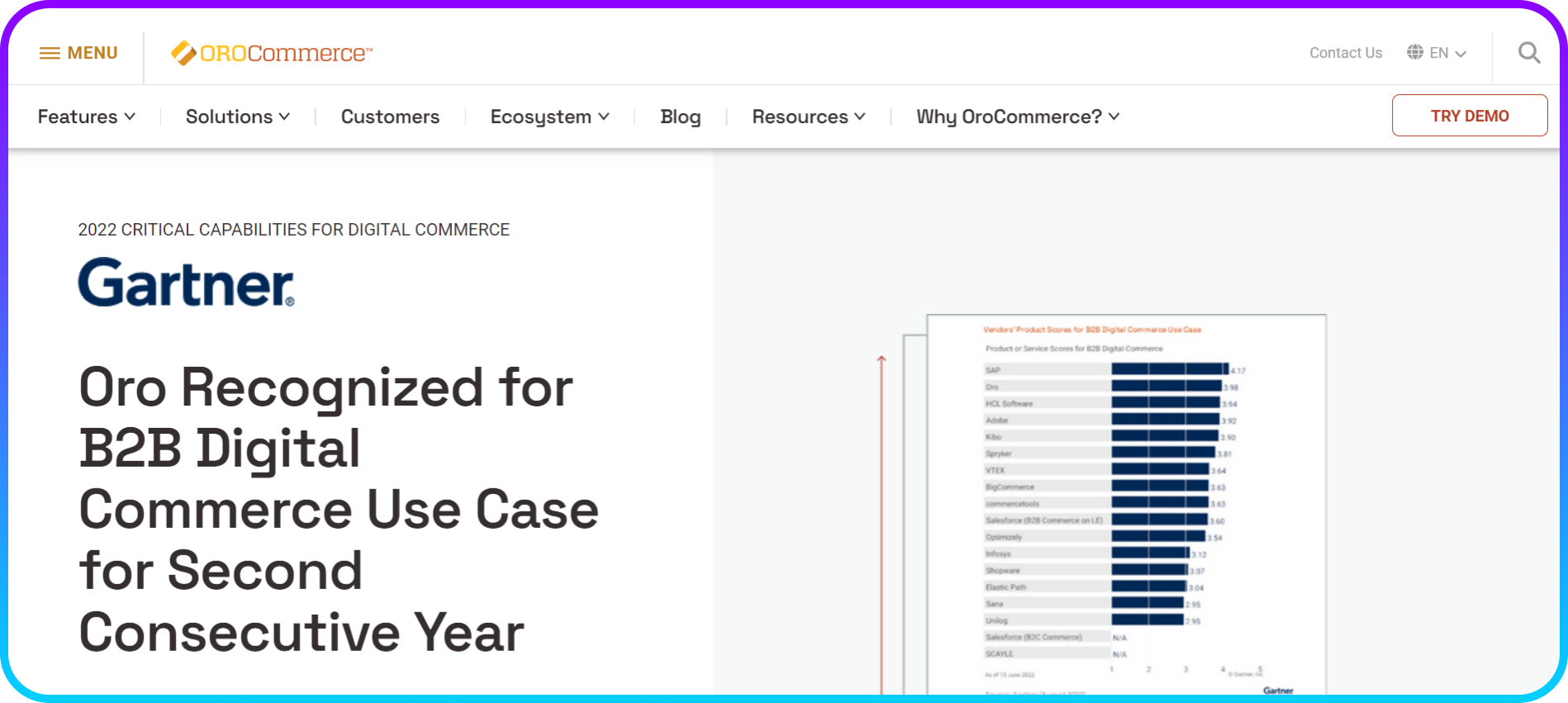
For setting up a B2B eCommerce platform, OroCommerce is the leading platform in the market. OroCommerce is an open-source B2B eCommerce platform targeted towards middle and large-sized companies and offers built-in CRM and third-party application integrations. OroCommerce is designed to enable business flexibility with premium features that can easily be customized to meet the requirements of transactions in sectors of B2B and B2C sales.
Pros:
- B2B-focused eCommerce platform with a wide range of features.
- Built-in CRM for control and management of all business accounts
Cons:
- The marketplace has a limited number of extensions
- The platform is not suited for smaller businesses
Pricing:
The Community Edition is Free, and Enterprise Edition is based on business size.
Shopware eCommerce
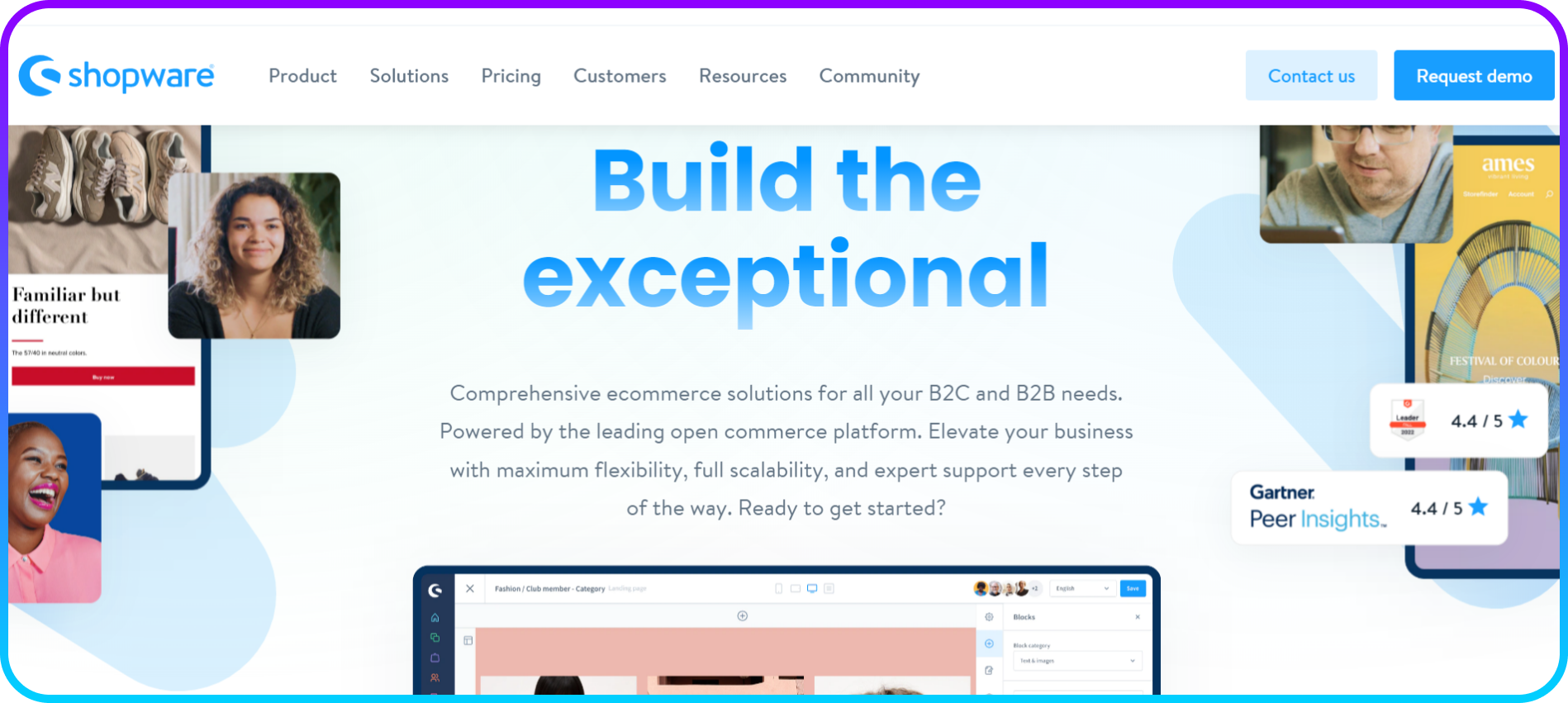
Founded in 2000, Shopware is a German-made eCommerce platform, designed to enable online merchants to rapidly develop and set up an online webstore. In 2020, Shopware announced the launch of its new feature, Shopware Cloud, which offered D2C (direct-to-consumer) functionalities to companies
Pros:
- Setting up and managing a Shopware webstore is very user-friendly
- The platform offers both on-premises and cloud-based solutions
- The platform comes with SEO functionalities and easy integration with email marketing providers such as Mailchimp.
Cons:
- More expensive than alternatives
- A comparably small number of extensions and plugins
Pricing:
Rise at $600/month; Evolve and Beyond at custom pricing based on business requirements
3dcart

3dcart is an eCommerce platform that offers cloud-based functionalities to merchants to rapidly create and launch webstores, sell online, enable transactions of payments, and fulfill order delivery. 3dcart is an all-inclusive platform, and comes packed with more than 200 built-in features, such as SEO optimization, drop-shipping support, and abandoned cart saver tools.
Pros:
- Wide range of premium functionalities without requiring the most expensive pricing plan.
- Enables fast order processing by printing single or many orders with one click, printing shipping labels, noting orders as delivered, and connecting with popular shipping providers.
Cons:
- Has a limited number of free templates to design the store
- Navigating the platform can be difficult for inexperienced users
Pricing:
Nano Plan at $9.99/month; Mini Plan at $19.99/month; Starter Plan at $35.99/month; Professional Plan at $65.99/month; Professional Plus Plan at $99.99/month
Volusion eCommerce

Volusion started out as a web design agency in 1999 and became one of the first SaaS eCommerce platforms in the early 2000s. The platform comes with robust built-in SEO features to help boost webstore visibility. The platform offers a user-friendly, straightforward interface combined with a drag-and-drop eCommerce website builder and free themes that are suited for various industries, users can create their stores within minutes.
Pros:
- One of the market leaders for dropshipping platforms in the eCommerce industry.
- User-friendly website builder and management tools with Advanced features and tools such as a store management app, inventory tracker, and barcode generator.
- An SEO-ready solution that enables managing meta descriptions, title tags, and URLs to make your pages SEO-friendly.
Cons:
- Dropshipping functionalities are limited to the USA
- SSL certificates come at an additional cost
Pricing:
14-day free trial with pricing plans as Personal at $35/month; Professional at $79/month; Business at $299/month and Prime based on the business size.
Swell Commerce
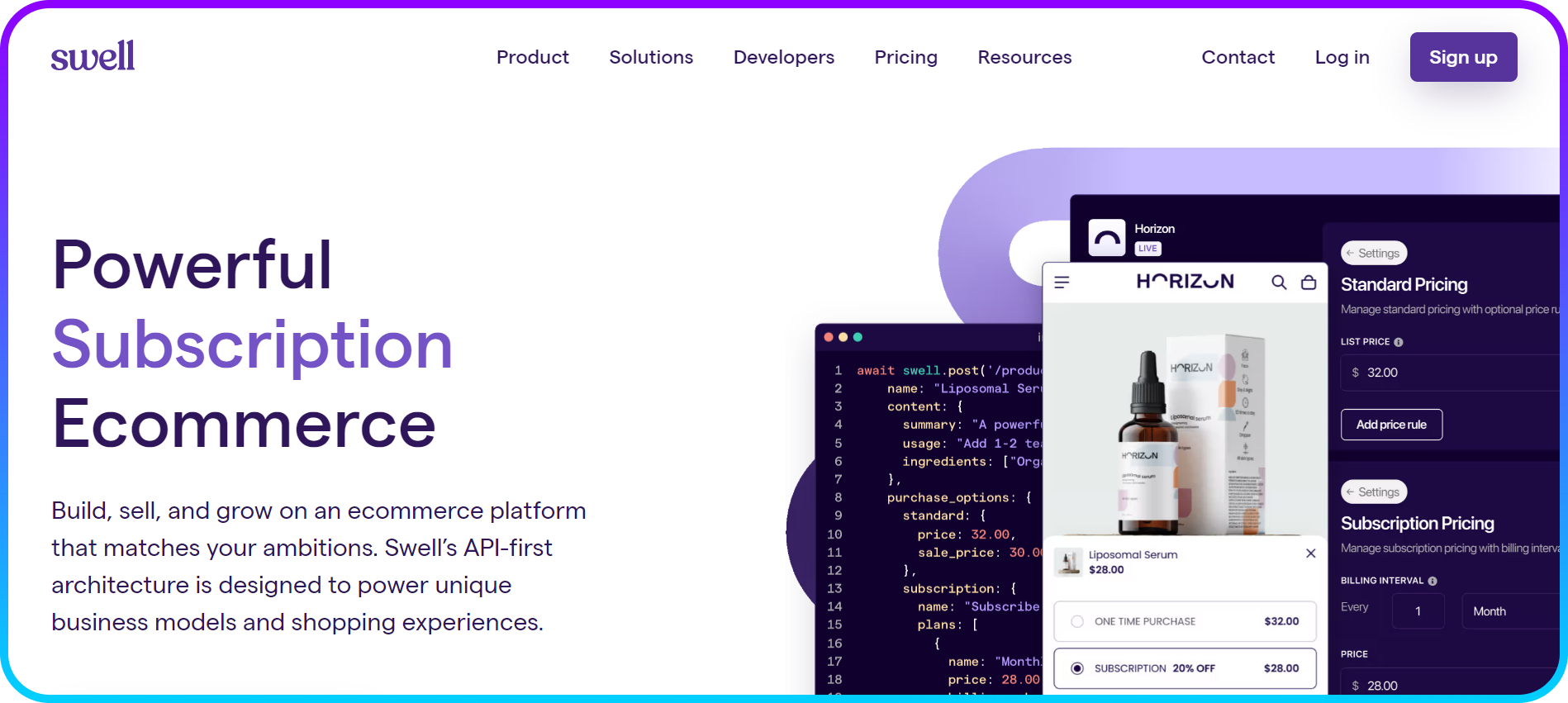
Swell is a robust eCommerce platform designed for ambitious and growing businesses. It provides a wide suite of functionalities sorted after by modern eCommerce businesses such as direct-to-consumer, marketplaces, multi-vendor options, pre-orders, subscription-based purchases, B2B, wholesale, and enterprise sales. The platform is good for all scales of businesses, from small to large enterprises.
Pros:
- With the API-first approach, the platform focuses on the headless operation for businesses
- With a native approach to localization features, Swell Commerce enables sellers to extend into near regions of the world, without any hassle
Cons:
- Limited integrations with third-party apps
Pricing:
Community version at Free; Standard at $299/month and Enterprise at $2,000+/month
Salesforce Commerce Cloud
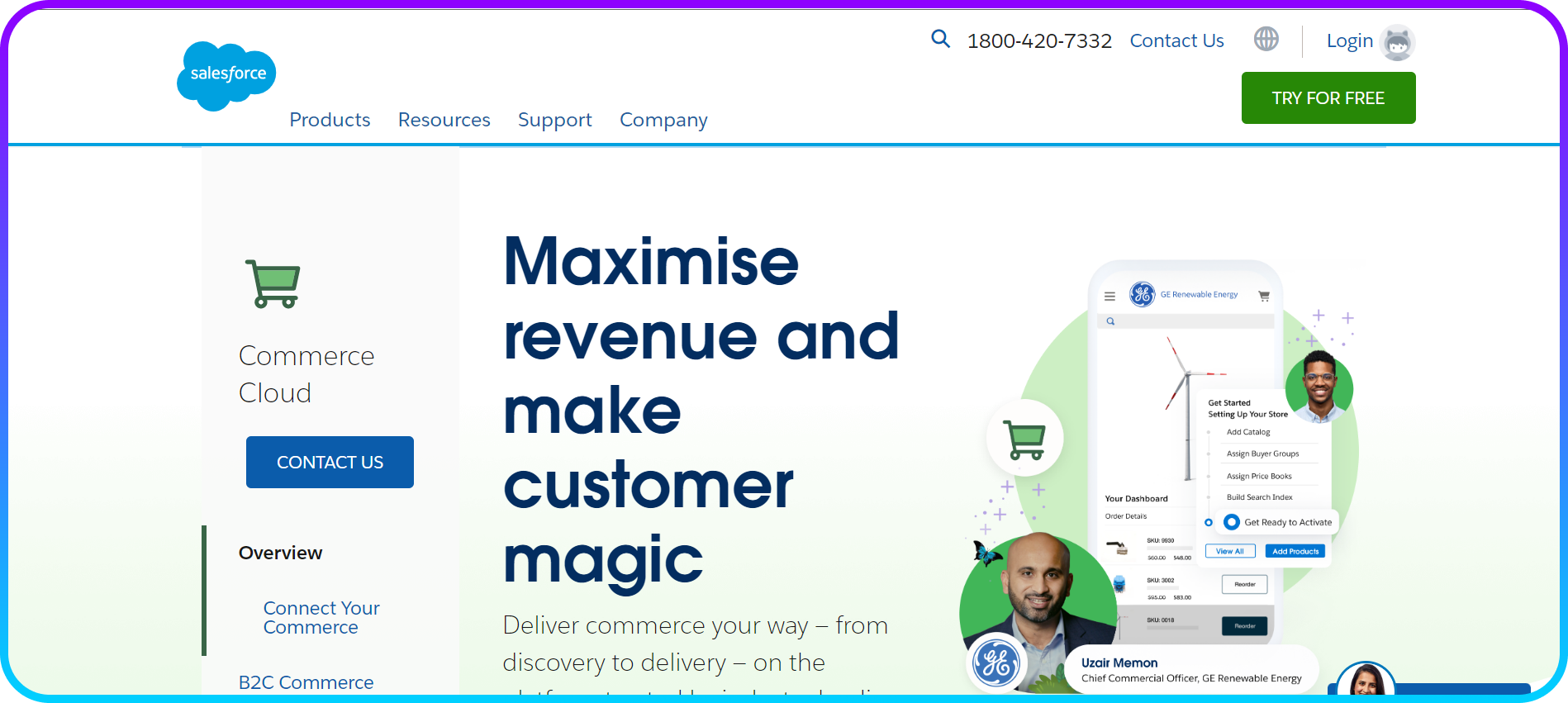
When talking about Salesforce the first thing that comes to mind is their CRM solution, however, Salesforce also offers eCommerce functionalities to sellers through Salesforce Commerce Cloud. Commerce Cloud accomplishes this by combining online store, predictive intelligence, order management, and mobile-first POS together. It also has a multi-tenant architecture that boosts the platform’s reliability and security.
Pros:
- Users can also choose to make their own upgrade or utilize a third-party integration without compromising the native cloud upgrade.
- Salesforce Commerce Cloud takes a mobile-first approach, providing a mobile-optimized eCommerce store with a user-friendly interface to attract and retain customers to make their shopping experience pleasant and friction-free.
Cons:
- You may run across several inconsistencies in the layout and features offered by the platform
Pricing:
B2C Commerce Edition with custom pricing based on Gross Merchandise Value and Order Management Edition with Starter at $ 0.30/order and Growth at $ 0.50/order
Zoho Commerce
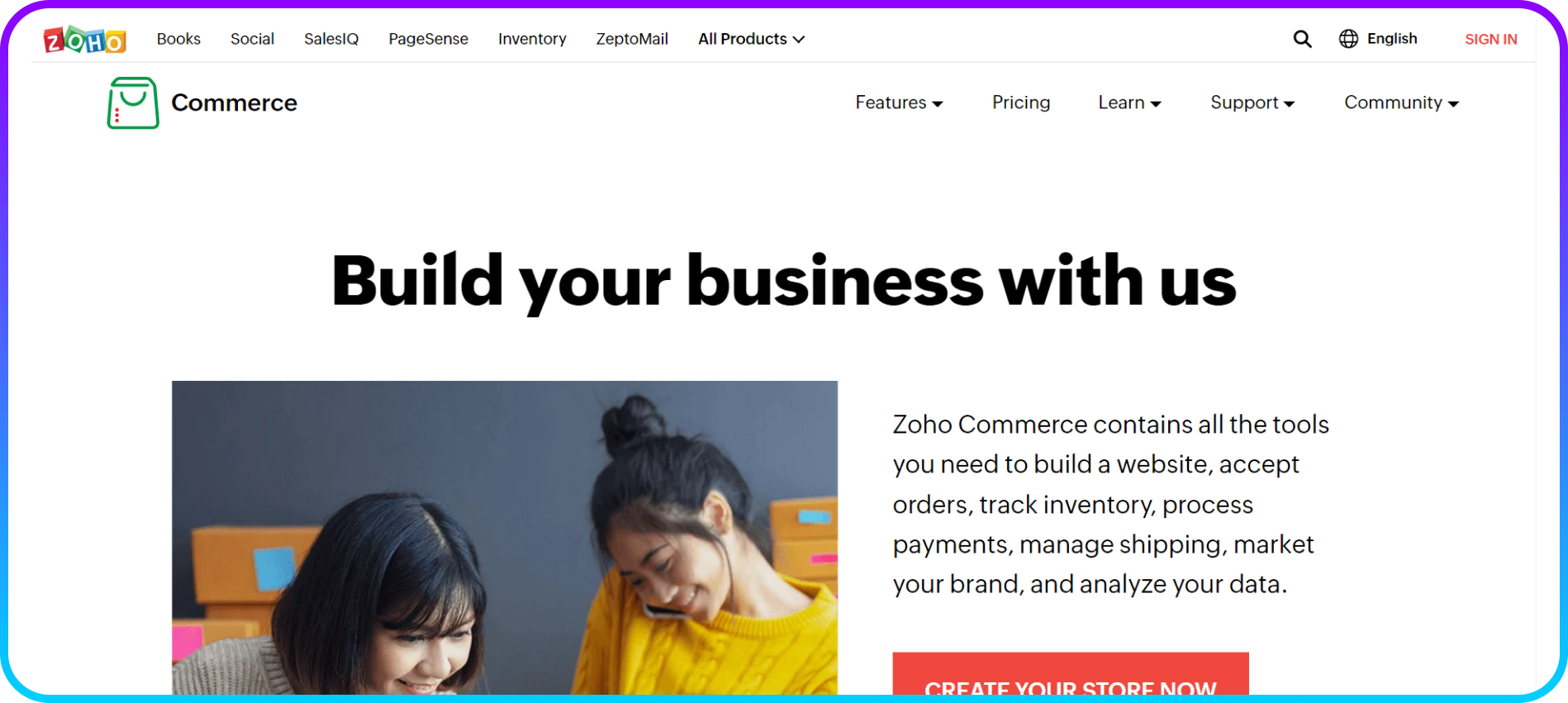
Zoho Commerce is the eCommerce platform offered by Zoho Corporation and integrates seamlessly with other Zoho business applications relevant to sales, marketing, and financial apps. The platform comes pre-packaged with inventory management and marketing tools and features an easy-to-use customization dashboard.
Pros:
- Inventory management and marketing tools come prepacked with the platform
- Supports a wide range of popular payment gateways, including PayPal and Stripe.
- Highly secure digital infrastructure with SSL certification.
Cons:
- The platform offers no free plan and is less affordable than its competitors
Pricing:
Starter at $27/month; Professional at $75/month; Advanced at $175/month
Wix

Wix is an easy-to-use, beginner-friendly website builder, ideal for individual sellers. The platform is highly intuitive to use at an individual level with tons of high-quality online store templates to choose from for free. The platform also provides multiple feature-rich plans to make selling online more effective such as the ability to sell unlimited products, abandoned cart recovery, and recurring payments.
Pros:
- All-in-one pricing includes full hosting, a domain, and an SSL certificate
- Offers over 500 themes and templates to build the website
- Allows creating multilingual stores.
Cons:
- Tracking and analytics require paid plan
- The entry-level e-commerce plan has a storage limit of 50 GB
Pricing:
Pricing for the platform goes as Business Basic: $23/month; Business Unlimited: $27/month; Business VIP: $49/month
Conclusion
With the growing popularity of customers opting to buy online, eCommerce is the future for business to conduct their operations. With the constant push to offer the best possible experience to customers as fast as possible, knowing the eCommerce platform that is ideal for the specific needs of a company is prudent. With so many eCommerce platform choices available in the market, it is important to pay attention to which features benefit most to a business as what works for one seller may not work for all sellers. With the power of a robust eCommerce platform that works in synchronization with the long-term goals of a business, organizations can drastically improve their market reach and achieve rapid, scalable business growth!
Working with an eCommerce platform with multiple business applications running in your business? Seamlessly connect your entire software stack with your eCommerce platform under a single, intelligent, and secure platform to automate your business processes – implement APPSeCONNECT’s robust integration connectors and achieve exponential growth in your business.





